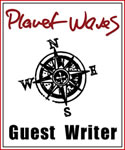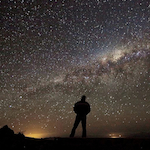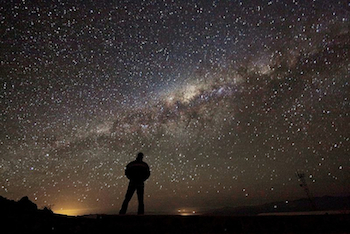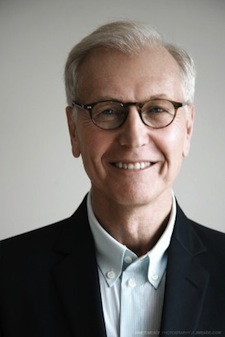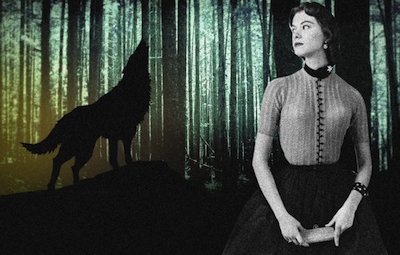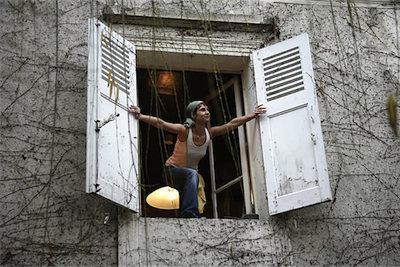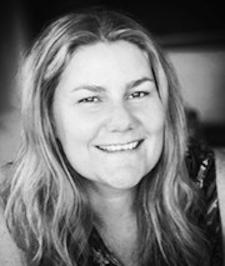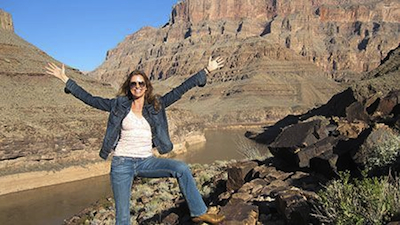This week’s sex-and-relationship guest-post comes from longtime sexuality author and photographer David Steinberg. His description of the evolution of sexual culture and privacy at Oberlin College in 1963, which coincided with the Uranus-Pluto conjunction in virginal Virgo, seems a perfect fit for this week’s final Uranus-Pluto square. — Amanda P.
By David Steinberg
“There are times when a man needs to be alone.”
This was the mock slogan of a mock campaign to keep Oberlin College from removing the doors from toilet stalls in men’s bathrooms on campus. It was a comedy skit broadcast over WOBC, Oberlin’s exceedingly ingrown campus radio station.
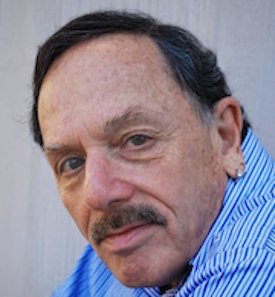
David Steinberg
The skit was a joke, but the issue of privacy on campus was not. What made the joke funny was that the college was so intent on keeping students from having any opportunity to be alone that they might even go so far as to invade the privacy of the bathroom.
The year was 1963. Within the dormitories of the Oberlin campus, tucked away in a small, culturally isolated, northern Ohio town, some 1800 blossoming young men and women — freed for the first time from the constraints and expectations of parents, home-town mores, and whoever they had been in high school — were busy discovering, inventing, and exploring who they were and who they wanted to be as sexual human beings.
The biggest stumbling block to this most natural and primal process was that, at this politically progressive but socially conservative college, there was literally no place on campus where two people not of the same gender could be alone without violating some college rule of social conduct. And, as a few wayward students inevitably found out, Oberlin College did not take the breaking of social rules lightly.
Men were not allowed in women’s dormitories at any time, except in the public, parlor-style lounge areas, and in the college-run dining halls where both men and women came for their meals.
Women were not allowed in men’s dormitories, period.
Except for a few students with special needs, no private cars were allowed on campus.
No one was allowed to live in private apartments off campus.
The bottom line was that there was, simply, no place for a boy and a girl to be alone. In a climate that was nippy in September, dominated by snow for the most of the winter, and prone to temperatures as low as twenty below in January and February, even the option of taking sex outdoors, especially when there was the comfort of darkness, required extreme determination and fortitude.
Those who think that antisexual attitudes haven’t changed over the last thirty years don’t remember (be it from youth, Alzheimer’s, or the ravages of MDMA memory loss) what things were like before the sexual boiling over of the 60s and 70s. In 1963, rumblings of sexual change could be heard on the cultural landscape if you listened really hard, but they were distinctly muted to say the least. It would be several years before a mass culture that celebrated sexual exploration and the unapologetic pursuit of sexual pleasure would be born. In 1963, rock and roll was just beginning to bring sex into music and dancing. The term “feminism” referred to a turn-of-the-century movement that had won women the right to vote but had turned its back on the idea of women being entitled to their own sexual desire.
Political movements for racial justice, gender equality, and the end to a brutal war in Asia were still limited to a few activists on the radical fringe. The birth control pills that would soon change the sexual and gender landscape forever were barely available and remained exotic and difficult to obtain. For one thing, obtaining a prescription for birth control pills meant that a woman had to identify herself as a person interested in sex. In 1963, that was no small matter for a single woman. Sex was still seen, essentially, as something that men wanted and women (“good” women, that is) resisted. The idea of a woman who was at once powerful, sexual, and wholesome was simply not in the social vocabulary.
Marijuana was rare and its use highly secretive. The cultural paradigm shift that would come from mass exposure to LSD and other psychedelics after the Haight-Ashbury and the Summer of Love was several years in the future. It was, sexually speaking, an innocent time, especially at an academically oriented school like Oberlin, whose students were much more focused on what they did with their minds than with their bodies.
Oberlin had long been known for its progressive politics, and would soon become one of the campuses that spearheaded the national movement for social change in the late 60s and early 70s. But it was also a college whose historical roots were 130 years deep in the soil of Protestant evangelism. The greatest evangelist of the early 19th century, Charles Finney, had brought his devoted followers to the mosquito-ridden swamps of Northern Ohio to found what he hoped would be a new social order and communal way of life. The college, founded in 1833, was literally built from the ground by students and faculty who worked together constructing the dormitories and classrooms while they followed their courses of study. From its inception, Oberlin offered Bachelor of Arts degrees to women, the first college in the United States to do so. In the days before the Civil War, it became an important center of anti-slavery activity as well, helping countless escaped slaves find their way to Canada and freedom.
The community’s devotion to Calvinist values, however, was as strong as its commitment to social justice. When I arrived at Oberlin in the fall of 1961, weekly chapel services — held on Tuesdays before lunch in the huge assembly hall named for Finney — had just been made voluntary for the first time ever. Women were still required to wear dresses at the sit-down dinner meals served in the campus dining halls, and men were required to wear jackets and ties. Before every dinner, we all sang grace in four-part harmony: “Thank God from Whom all blessings flow/Thank Him all creatures here below/Thank Him and all the heavenly Host /Thank Father, Son and Holy Ghost.” As an atheistic Jew from New York, this put me through a good dose of culture shock, but I was enjoying being off on my own in the exotic Midwest, and the singing was beautiful indeed.
When it came to matters of regulating sexual behavior on campus, the deans, faculty, doctors and psychological counselors at Oberlin saw their role as being essentially parental. As justification for the school’s highly restrictive social code, they cited the legal doctrine of “in loco parentis” — that a college was entitled to act as legal representatives of the parents who had entrusted their children to its care.
When students began to protest against the antisexual stance of the college, the college fought hard to maintain its restrictive status quo. It argued that it had the responsibility of protecting female students from situations in which they would be pressured to be more sexual than they wanted to be and, of course, ultimately to protect them from pregnancy. There was no consideration given to the possibility that young women might themselves be interested in sex, or that women students might benefit from learning how to establish and maintain their own sexual choices and boundaries, rather than having the college arrange their sexual choices for them and without their consent.
Certainly, most women students at the college were too intimidated by the demands of “good girl” social status to publicly state that they wanted to be more sexual than circumstances at Oberlin made possible. It was only after privacy became a political issue on campus, and after the college student government conducted an elaborate, sociologically correct, 80-question survey of the entire student body, that it became possible for women as well as men to stand up for their sexual rights. Students at the University of California formed the Free Speech Movement and made headlines protesting for academic freedom. At Oberlin, the issue that galvanized mass student protests was the right to privacy and the right to be treated as responsible adults when it came to sex.
Necessity is indeed the mother of invention. Faced with such a fundamental lack of privacy, students at Oberlin developed a sexual culture that would seem positively kinky to someone who didn’t understand its roots. Widespread public sexual behavior was not only accepted campus-wide, but also taken very much for granted. Every night, the two-seat couches that filled the public lounges of the women’s dorms were filled with couples kissing, fondling, and generally crawling all over each other. The housemothers of the various dormitories made their disapproval of sexually loose behavior well known, but they also turned collective blind eyes to the recurring evening ritual of mass, if restricted, sexual play.
Lacking physical privacy, we created, by unspoken common agreement, a culture of designated psychological privacy that, while not as permissive as being truly alone, left room from a remarkable degree of public sexual expression. It was, in effect, a “don’t look, don’t tell” understanding that everyone on campus respected — housemothers, senior residents, and all students, whether they had sexual partners or not. We all became so accustomed to the unmistakable sexual activity around these public rooms that we no longer even noticed that it was going on. And the couples on the couches became equally comfortable with being unmistakably sexual in public, as if what they were doing was invisible and inaudible to everyone but themselves. Public sex became collectively invisible. No one thought about it or talked about it. It was a fact of life. It was only when parents or other visitors registered shock, or a new crop of freshmen arrived, that we remembered that the Oberlin Way of Public Sex was not the way the rest of the world operated.
Oberlin students were not the first social group to invent psychological privacy where no physical privacy existed. Prisons have elaborate cultures of sex between inmates and visitors, conducted behind the minuscule screens of strategically situated open pizza boxes, while guards and other inmates learn not to notice what’s going on. People in Japan literally do not hear the sounds, obvious to Europeans, of people making love on the other side of rice paper walls. Sex is a primal enough force that it will find a way to express itself, no matter what the external constraints may be.
At Oberlin, it wasn’t long before every couple knew the best spots for sexual play. The most dedicated and determined hurried after dinner to win their favorite couches for the evening. In the dorm where I had meals during my freshman year, the most private spot was the couch at the end of the dead-end corridor that ran next to the dining hall. Once dinner was over and the dining hall had been cleared and cleaned, the corridor was essentially deserted, except for the couples who inhabited the parallel row of couches we all called home. Conveniently, the couches faced not each other but out to the large windows that looked outside, conveniently curtained at night. The couch at the end of the corridor had greatest privacy, followed in order of preferability by each one a little closer to the main lounge area with its flow of pedestrian traffic.
I was 17, on my own for the first time in my life, and joyously discovering the wonders of sex with a girl I had met and fallen in love with on the second day of freshman orientation. She was small like me, lively, blond, Lutheran, midwestern, and as sexually experienced as I was sexually naive. For a year, we could hardly keep our hands off each other. Why would we want to?
Anne (not her real name) and I would make a beeline for that last couch every night as soon as dinner was over, toting books for studying, which we also managed to do from time to time during the evenings. There were four or five other couples (I still remember who they were), as sexually preoccupied as we were, who would almost always be on the adjacent couches lining the corridor. Over weeks and months, we got to know each others movements and sounds quite well, although we never admitted anything of the kind to each other, or ever acknowledged, beyond a neutrally friendly smile, the peculiar intimacy we all shared.
Sometime during my freshman year, the college culture of sexual semi-privacy took what was for Oberlin a Great Leap Forward, perhaps in response to increasingly vocal student objections to the sexual status quo. A major renovation of the campus student union was undertaken to expand office space for a variety of campus organizations. More significantly, the new student union provided, for the first time, some twenty “study rooms,” available for student use in the afternoons and evenings on a first-come, first-served basis. Each small room had a table, a couple of chairs, the familiar two-seat couch, and, most important of all, a door. Inevitably, it was college policy that the door had to be left open a bit (the width of the small rectangular waste baskets stuck in the door became the standard). Studying students were also ordered by the college to “keep four feet on the floor,” a definition of the difference between acceptable and unacceptable conduct that I have always thought remarkably ingenious. But, even with those theoretical limitations, the study rooms represented a huge step forward in the sexual privacy they offered.
Needless to say, the rooms were in great demand from the first day they became available. Sign-up lists were posted early every day, and those of us who paid primary attention to such things made a point of showing up early to be sure we got a room for one of the designated two-hour (or was it four-hour?) time periods. Evenings were preferred, of course, but if evening hours were unavailable, afternoon times would do. No streetwalkers’ hotel has ever had as steady a turnover of amorous couples as did the study rooms of Wilder Hall, where parades of eager young men and women came and went like clockwork from opening bell after lunch until the building shoved the last couples into the darkness at midnight.
Of course, twenty rooms were hardly adequate to accommodate the sexual needs of a student body of almost 2000, even if couples were limited to one time period per day. But coming from a situation of no privacy whatsoever, the study rooms of Wilder Hall felt like the height of sexual luxury. Monitors came by the rooms periodically, checking to see that the doors were indeed open, and sticking their heads in to make sure that people had their clothes on and were behaving in something resembling the “four feet on the floor” code. Between these random and somewhat predictable sweeps, couples were limited only by what they were comfortable doing with a door that was not completely closed and the possibility of being interrupted at any moment.
While some people claimed to actually have had intercourse in the study rooms, either with the door open or with the door illegally closed, I think most couples confined themselves to more limited and, one could argue, more creative ways of being sexual. Personally, I was still very much into being the good boy and afraid of the consequences of being caught being fully sexual. While Anne and I probably spent more hours a week being sexually aroused than anyone else we knew (we developed quite a reputation among our classmates, I’ve been told), it wasn’t until six months later, when we had the safety of being truly alone in my parents’ home while they were away on vacation, that we had intercourse for the first time.
As horrible as the sexual restrictions felt at that time, and as fervently as I organized then to overturn the college’s antisexual attitude, I have to say that I look back at that time of constraint with great fondness. Anne and I certainly had no trouble deriving great pleasure, several times a day, from the clothes-on touching and kissing and rubbing and tasting that we developed to quite a fine art, if I do say so myself. Call it “Zen and the Art of Sex at Oberlin” — the idea of not proceeding to a second level of endeavor until you have fully explored and mastered all the nuances of the first.
Of course, I’m not condoning sexual restriction as a general social policy, or supporting the idea of adults should admonish adolescents to control their sexual appetites, or any notion that adds to the deep-seated fear in this society of all things sexual. But I can also see how emerging as a sexual adult in a climate of extreme sexual restriction taught me to be sexually creative and to realize that the sexual panorama is a good deal more broad than the mainstay of heading for penis-vagina intercourse by the most direct route possible. The Goddess most assuredly works in strange ways, not the least important of which may be teaching us how to use the difficulty of restrictive circumstances as a means of furthering our personal growth and development.
The culture of sex at Oberlin, by the way, has taken quite a turn for the better since I graduated in 1965. Dormitory rooms became open to people of all genders shortly thereafter, and sex became, as it always should have been, one more aspect of life to be appreciated or questioned, loved or hated, happy or sad, confirming or challenging, as the case may be. A great time of coming out for gay, lesbian and (eventually) bisexual students on campus led to Oberlin becoming something of a Mecca for entering students who were gay and lesbian during the 80s and 90s. I’m told that the college has continued to develop quite a culture of open queer acceptance and visibility. An annual cross-dressing ball, involving gay-straight-bi students and faculty alike, has become one of the college’s most cherished and wholesome social traditions.
Charles Finney must be turning over in his grave.
This column was originally published in Spectator Magazine, and published in the Comes Naturally newsletter in issue #96, May 5, 2000. Copyright (c) 2000 David Steinberg. Sternberg is a photographer, author and journalist whose work focuses on issues of masculinity and sexuality. His current website is called Erotic by Nature; his latest book, titled This Thing We Call Sex: A Radically Sensible Look at Sex in America, was published by Booktrope on March 13, 2015.

